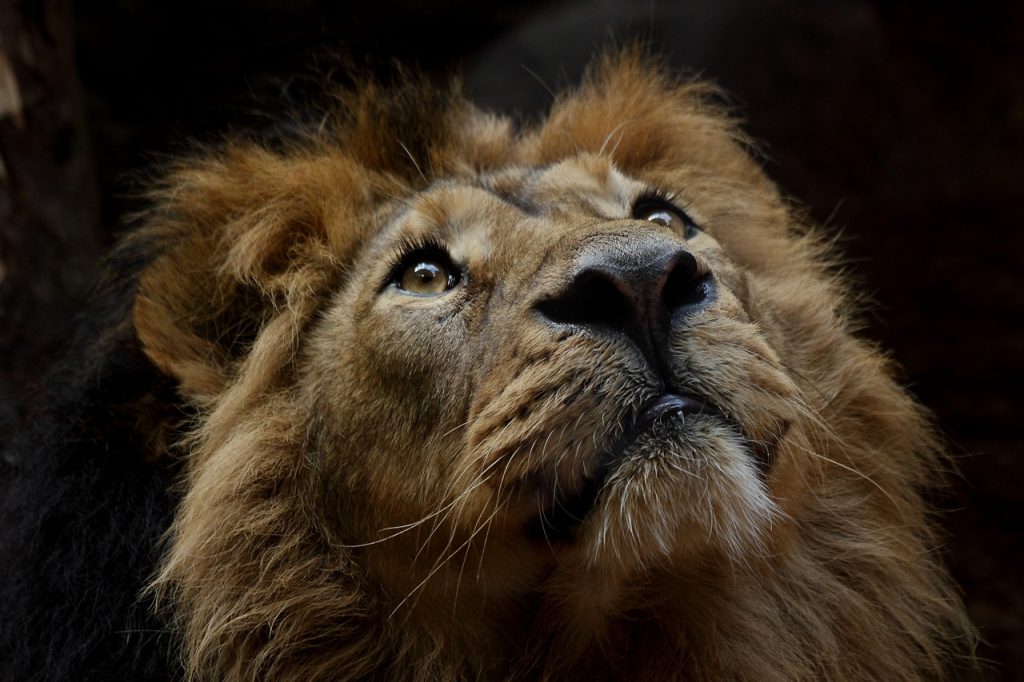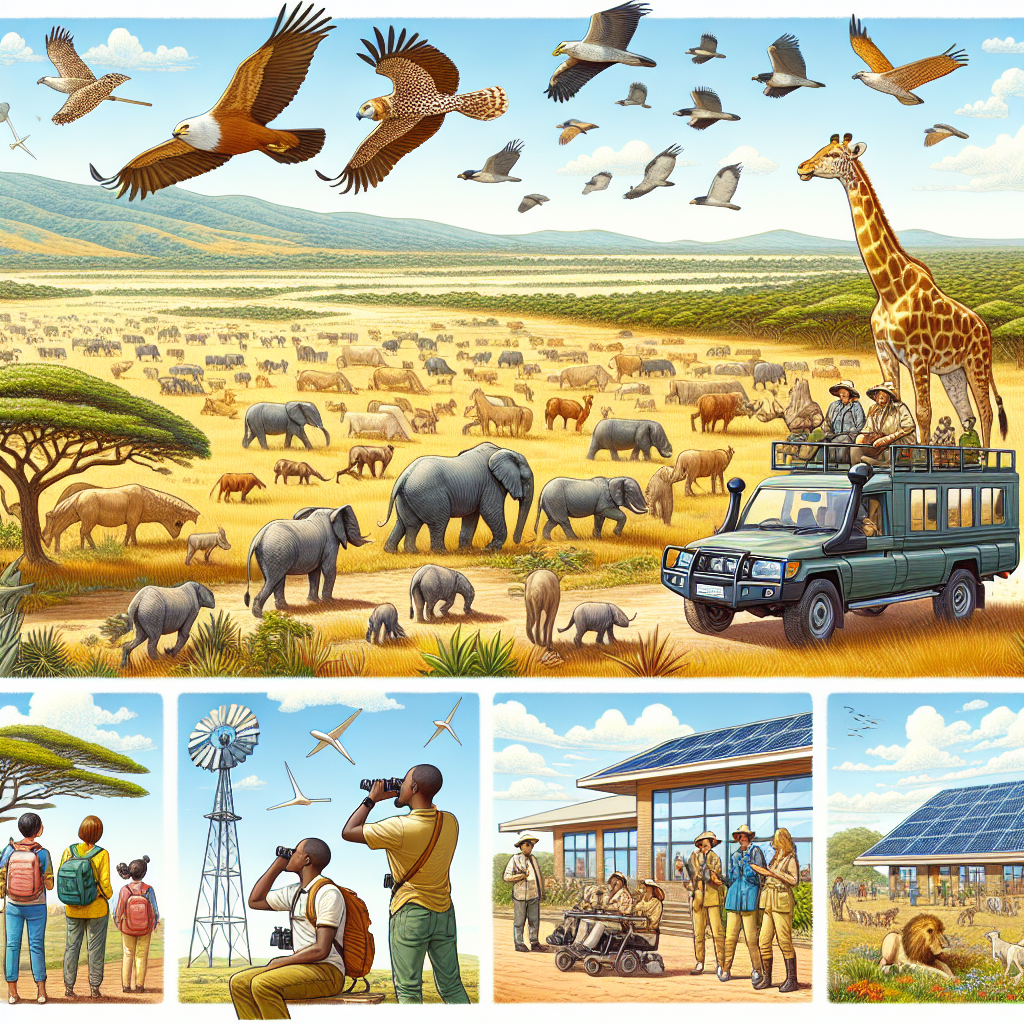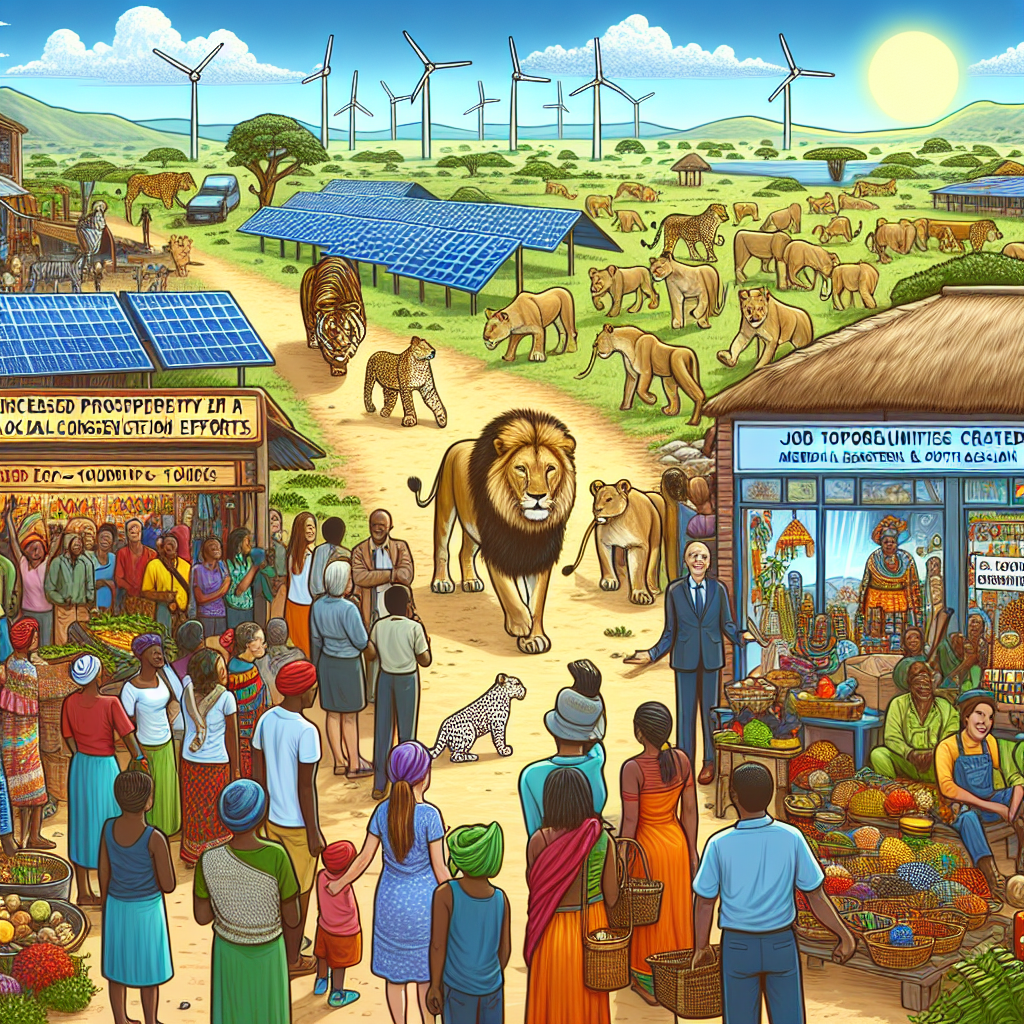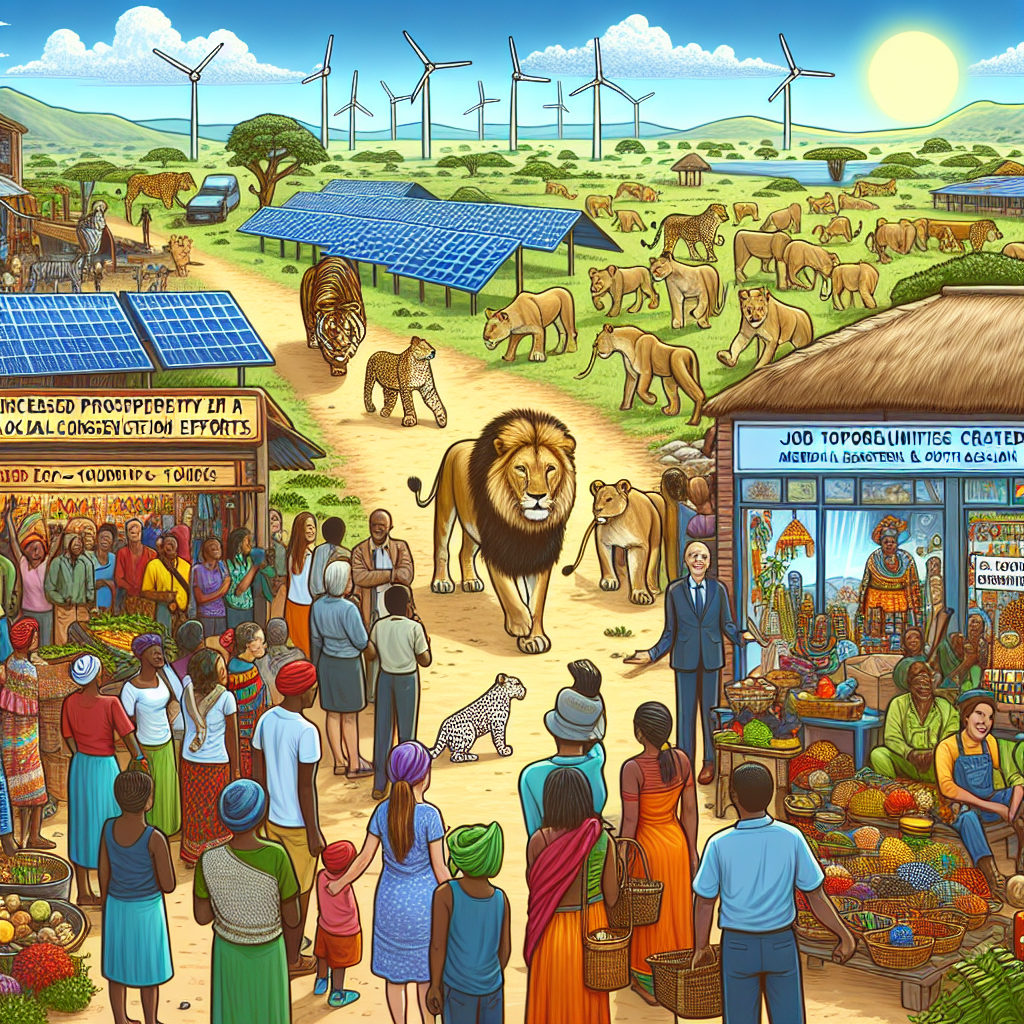Picture this: you’re standing in the middle of the African savannah, the golden grass stretching as far as the eye can see. The air is filled with an electrifying energy, and in the distance, you catch a glimpse of a majestic lion. It’s a breathtaking sight, one that has captivated humanity for centuries. But did you know that beyond their awe-inspiring beauty, lions hold a crucial economic value for local communities? In this article, we will explore how conservation efforts aimed at protecting lions not only safeguard their habitats but also bring substantial benefits to the people who share their land. From tourism revenue to job creation, the economic impact of lions is far-reaching, making their conservation a win-win situation for both wildlife and local communities.

Overview of Lions and their Economic Value
Introduction to lions
Lions, scientifically known as Panthera leo, are majestic and iconic big cats that have captivated humans for centuries. Found primarily in sub-Saharan Africa, these powerful predators play a vital role in the ecosystem and have significant economic value. In this article, we will explore the different ways lions contribute to the economy and the importance of conservation efforts in ensuring the prosperity of local communities.
The role of lions in the ecosystem
Lions are apex predators, meaning they are at the top of the food chain in their habitats. Their presence helps maintain a delicate balance in the ecosystem by controlling the population of herbivores such as zebras, wildebeest, and buffalo. This, in turn, prevents overgrazing and safeguards the vegetation, making lions a crucial link in the ecological web.
Understanding the economic value of lions
While the intrinsic value of lions is undeniable, it’s essential to recognize their economic significance as well. Large numbers of tourists flock to countries in Africa that are home to lion populations, providing a boost to the local economy through wildlife-based tourism revenue. Additionally, lions contribute to scientific research, education, and create employment opportunities through ecotourism initiatives. By understanding and harnessing their economic value, we can ensure the conservation of lions for future generations.
Direct Economic Benefits of Lions
Lion-based tourism
Lions draw tourists from all around the world, eager to observe these regal creatures in their natural habitat. The thrill of encountering a lion on a safari is a once-in-a-lifetime experience for many visitors, making it a significant driver for tourism in countries like Kenya, Tanzania, and South Africa.
Revenue generation through wildlife safaris
The presence of lions in national parks and protected areas is a key attraction for wildlife safaris. These safaris generate substantial revenue through park fees, accommodation, and tour packages. This revenue directly contributes to the local economy, supporting infrastructure development, regional businesses, and job creation.
Employment opportunities in ecotourism industry
Lion-based tourism creates a ripple effect of job opportunities. From safari guides and park rangers to lodge staff and wildlife photographers, many individuals and communities rely on the ecotourism industry for their livelihoods. The economic benefits extend beyond direct employment, as supporting services like transportation, hospitality, and local crafts also thrive.
Indirect Economic Benefits of Lions
Ecological balance and impact on biodiversity
Lions play a critical role in maintaining the ecological balance of their habitats. By keeping herbivore populations in check, they prevent overgrazing and safeguard the integrity of the ecosystem. This, in turn, fosters a diverse range of plant and animal species, contributing to the overall biodiversity of the region. Biodiversity attracts more tourists, leading to increased revenue and economic opportunities for local communities.
Importance of lions in promoting a healthy ecosystem
In addition to maintaining biodiversity, lions also promote a healthy ecosystem by influencing the behavior of other species. Their presence prevents herbivores from becoming complacent and encourages constant movement, preventing overuse of limited food resources. This dynamic equilibrium leads to a more sustainable and resilient ecosystem, which is crucial for long-term economic stability.
Contribution to wildlife-based research and education
Lions serve as ambassadors for wildlife-based research and education. Their unique characteristics and behaviors captivate scientists, educators, and students alike, providing valuable insights into animal behavior, ecology, and conservation. Their study not only contributes to scientific knowledge but also enhances educational programs, fostering a deeper understanding and appreciation for wildlife among local communities and visitors.
Conservation Initiatives and Community Engagement
Community-based conservation programs
Recognizing the importance of engaging local communities in conservation efforts, many initiatives have adopted community-based approaches. These programs involve local stakeholders in decision-making processes, enabling them to share their traditional knowledge, values, and experiences. By empowering communities and providing them with incentives for conservation, such as alternative income sources and capacity-building opportunities, these initiatives foster a sense of ownership and collaboration.
Capacity development and training for local communities
Conservation efforts go beyond preserving a particular species; they empower communities to take responsibility for their natural resources. Capacity development and training programs equip local communities with the knowledge and skills needed for sustainable resource management. This enables them to participate in conservation activities, engage in eco-tourism initiatives, and ensure the long-term protection of lions and their habitats.
Involvement of local communities in anti-poaching efforts
Poaching poses a significant threat to lion populations, driven mainly by illegal trade in their body parts. Engaging local communities in anti-poaching efforts is crucial for success. By training and employing locals as wildlife rangers and providing them with incentives to protect lions, these efforts not only safeguard the species but also tackle the underlying socioeconomic issues that drive poaching.

Positive Impacts on Livelihoods
Income generation through eco-lodges and campsites
The presence of lions in an area creates opportunities for income generation through the establishment of eco-lodges and campsites. These accommodations attract tourists seeking an authentic wildlife experience, providing employment and business opportunities for locals. The revenue generated from the hospitality sector contributes to the economic growth of the community and enhances their quality of life.
Creation of local businesses and entrepreneurship
Lions act as catalysts for local businesses and entrepreneurship. From souvenir shops and restaurants to transportation services and guiding companies, the demand created by tourists visiting lion habitats fosters the growth of various industries. The establishment of these businesses not only benefits individual entrepreneurs but also stimulates the overall economic development of the region.
Supporting local suppliers and markets
The ecotourism industry stimulated by lions creates a demand for local goods and services. Supporting local suppliers, such as farmers, artisans, and craftsmen, allows the community to benefit directly from the economic activities surrounding lions. By integrating local suppliers into the supply chain of the tourism industry, the economic benefits are distributed more equitably, promoting sustainable development.
Challenges Faced by Local Communities
Human-wildlife conflicts and mitigation strategies
Living in close proximity to lions can lead to conflicts between local communities and these predators. Lions occasionally threaten livestock, which is often the sole source of income for many families. Implementing effective mitigation strategies, such as the use of predator-proof enclosures, early warning systems, and compensation schemes, helps reduce conflicts and ensure the coexistence of people and lions.
Mitigating livestock predation
Livestock predation by lions can cause significant economic losses for local communities. Implementing measures to mitigate predation, such as improving livestock husbandry practices, employing guard animals, and implementing community-led predator-monitoring programs, can protect both the livelihoods of communities and the lives of lions.
Balancing conservation with land use for local communities
Allocating land for conservation can sometimes limit opportunities for local communities to engage in other economic activities, leading to tensions and competition for resources. Achieving a balance between conservation efforts and land use for agriculture, grazing, and other livelihood activities is crucial. Incorporating sustainable land-use practices, promoting diversification of income sources, and ensuring equitable distribution of benefits help foster harmony between conservation and local communities.

Role of International Organizations and Donors
Financial support for conservation projects
International organizations and donors play a vital role in providing financial support for lion conservation projects. Funding is crucial for various initiatives, including research, anti-poaching efforts, community engagement, and capacity development programs. By investing in lion conservation, these organizations contribute to the economic well-being of local communities and the preservation of a global natural heritage.
Collaboration with local communities
International organizations and donors collaborate closely with local communities to ensure effective conservation outcomes. By supporting community-based initiatives, fostering participatory decision-making processes, and valuing traditional knowledge, these organizations establish partnerships that ensure sustainable conservation practices and maximize economic benefits for local communities.
Capacity-building and sharing best practices
International organizations and donors contribute to capacity-building efforts in lion range countries. Training programs, exchange visits, and knowledge-sharing platforms help empower local communities to take an active role in lion conservation. By equipping them with the necessary skills and tools, these organizations promote self-sufficiency and long-term sustainability, ensuring that the economic benefits derived from lions are maximized.
Benefits for Future Generations
Education and awareness programs
Investing in education and awareness programs is essential for securing the long-term prosperity of local communities. By fostering a deep understanding of the economic value of lions and the importance of conservation, future generations can become guardians of these magnificent creatures. Education encourages responsible decision-making, promotes sustainable practices, and ensures the preservation of lions and their habitats.
Promotion of responsible tourism
Responsible tourism practices are crucial for minimizing negative impacts on lion habitats and local communities. Encouraging tourists to follow ethical guidelines, such as supporting eco-friendly accommodations, respecting wildlife, and minimizing their ecological footprint, ensures the long-term economic benefits derived from lions are sustained while preserving the natural heritage for future generations.
Preserving natural heritage for future sustainability
Conservation efforts aimed at protecting lions and their habitats are essential for the sustainability of future generations. By preserving the natural heritage, we not only secure the economic benefits but also maintain ecological integrity, cultural richness, and inherent value for future communities. Lions inspire awe, promote tourism, and remind us of the importance of protecting the natural world for our children and theirs.

Case Studies of Successful Initiatives
Conservation success stories from different regions
Numerous successful lion conservation initiatives have demonstrated the economic benefits for local communities. For example, the Maasai Mara lion population in Kenya has seen significant growth due to the implementation of community-based conservation programs. This has resulted in increased tourism revenue, employment opportunities, and higher levels of financial independence for the Maasai people.
Measuring the impacts on local communities
Assessing the socioeconomic impacts of lion conservation initiatives on local communities is crucial for understanding their direct and indirect benefits. Studies have shown positive effects on income levels, employment rates, education, and overall quality of life in communities living near protected lion habitats. By quantifying these impacts, we can further strengthen the case for lion conservation and inspire replication elsewhere.
Replicating successful models in other areas
Successful lion conservation models can be replicated in other regions to maximize economic benefits. The lessons learned from established initiatives in countries like Kenya and Tanzania can be adapted and implemented elsewhere, considering the unique socio-cultural, economic, and ecological contexts. By sharing best practices and knowledge, we can ensure that more communities benefit from lion conservation efforts.
Conclusion
In conclusion, lions are not just awe-inspiring creatures but also hold significant economic value for local communities. Through direct benefits such as lion-based tourism, revenue generation, and employment opportunities, as well as indirect benefits like ecological balance and research contributions, lions contribute to the economic prosperity of communities living near their habitats. Conservation initiatives that engage local communities, address challenges, support livelihoods, and collaborate with international organizations and donors are crucial for maximizing these benefits. By investing in the future through education, responsible tourism, and preserving our natural heritage, we can ensure that lions continue to provide sustainable solutions for long-term prosperity and benefit future generations.


